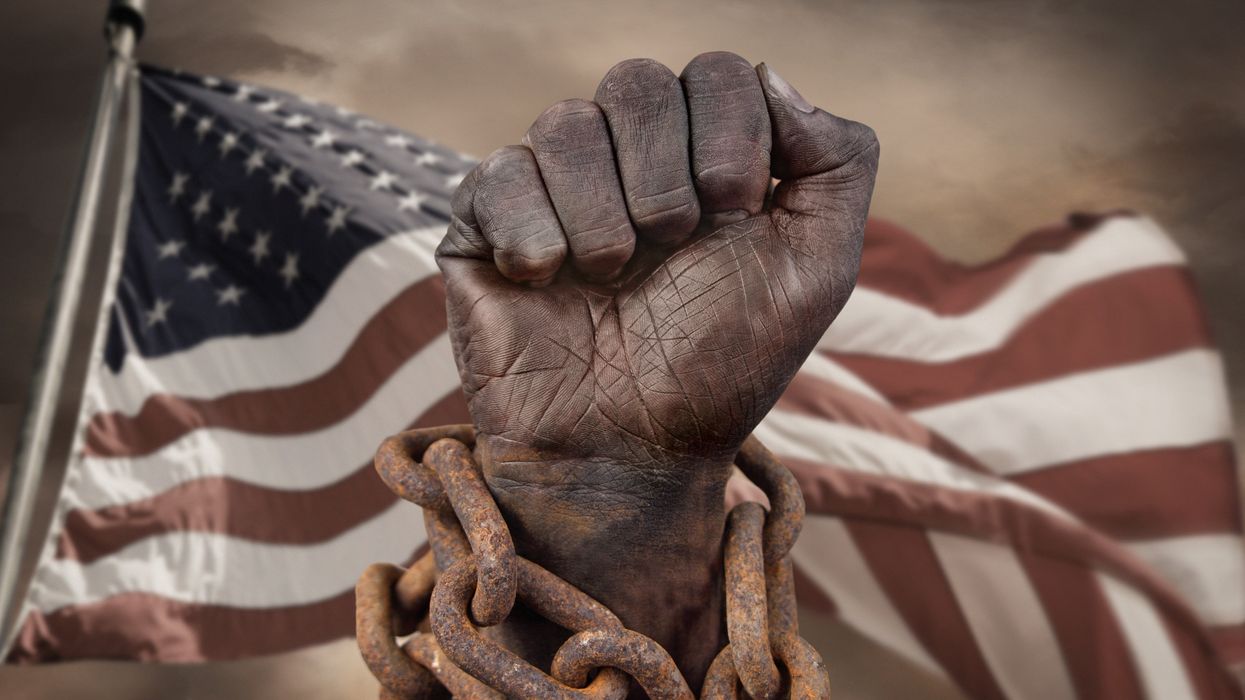Johnson is a United Methodist pastor, the author of "Holding Up Your Corner: Talking About Race in Your Community" and program director for the Bridge Alliance, which houses The Fulcrum.
Dear America,
Once again, as we find ourselves standing at the threshold of another Fourth of July, a day set aside to commemorate the signing of the Declaration of Independence, my heart swells with a tumultuous mix of emotions — I feel respectful reverence for the lofty ideals enshrined within that sacred document and profound gratitude for the freedoms we do enjoy, yet sorrowfulness and righteous indignation burn within me.
Like the great Frederick Douglass, my soul is torn by the stark contradiction between celebrating our nation's birth and the painful reality that the promises of true liberty and justice remain unfulfilled for far too many of our fellow citizens.
In his iconic 1852 oration, Douglass posed a searing question that still haunts us today: "What, to the slave, is the 4th of July?" His answer, a bitter indictment of our nation's hypocrisy, still resonates: "I answer: a day that reveals to him, more than all other days in the year, the gross injustice and cruelty to which he is the constant victim." Though the bloodshed of our Civil War formally abolished chattel slavery, Americans must still confront the uncomfortable truth that its malignant legacy persists in the systemic racism that continues to disenfranchise people of color, denying them true equality and justice. From the lingering wealth gap rooted in stolen labor to the biased institutions that perpetuate inequality, the echoes of slavery reverberate through our society.
We live in a time when voter suppression, racial profiling and mass incarceration disproportionately target communities of color, stripping them of their fundamental rights and dignity. These are not merely "glitches" in the machinery of our democracy; they are stark reminders that the promise of life, liberty and the pursuit of happiness remains an elusive dream for those whose skin is the wrong color. They are the bitter fruit of a tree still nourished by the roots of racism.
But the threats to our Republic extend far beyond the persistence of racial injustice. The very foundations of our democracy are steadily eroding beneath our feet. Unwarranted attacks on a free press, the blatant attempts to undermine the integrity of elections, and the demonization of those who dare to dissent are just a few examples of this alarming trend. Such practices are not the acceptable norms of a healthy, equitable or representative democratic republic; they are the desperate power grabs of those who fear losing their grip on control. They are a poison seeping into the veins of our nation, threatening to destroy the body of our democracy from within.
Yet, even as we face these profound challenges, I refuse to surrender to despair, for I know that America's true power has never resided solely in its institutions or leaders. It has always lain with its people — with our capacity for moral outrage, our determination to demand better, and our unwavering commitment to the ideals of freedom, equality and justice. From the abolitionists to the suffragettes, from the civil rights movement to the activists of today, it is the people who have always been the engine of progress in our nation.
So let us not merely go through the motions of yet another Fourth of July. Instead, let us make this a day of reckoning, a day when we recommit ourselves to the unfinished work of our democracy. Let us declare, with one voice, that we will no longer tolerate the erosion of our rights, the suppression of our voices, and the denial of our dignity. Let us decree that we will fight, tirelessly and unflinchingly, for a nation where every citizen, regardless of race, creed or station, can truly pursue happiness and live free — defending the sacred principles enshrined in the Declaration of Independence.
If we remain silent in the face of injustice and abandon the promises of our founding, we risk losing America's very soul. But if we rise, demand better for ourselves and our leaders, and recommit to the radical notion that all people are created equal, then there is no challenge we cannot overcome, no justice we cannot achieve. This Fourth of July, let us not merely celebrate our past. Let us forge a new future where the promises of the Declaration are made real for every American. Let us show the world and ourselves that we remain a people capable of greatness who will never stop striving for a more perfect Union.
We are a nation that can look itself in the mirror, acknowledge its flaws and yet never stop working to become a better version of itself. We may remain a nation of people who can do great things when we come together to pursue a common purpose — with liberty and justice for all!
With hope, determination, and faith in us all,
Rev. Dr. F. Willis Johnson




















Trump & Hegseth gave Mark Kelly a huge 2028 gift